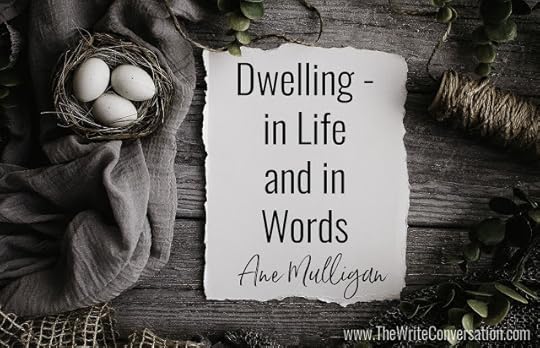Edie Melson's Blog, page 174
January 28, 2021
Digital Soul Care for Writers

by Edie Melson @EdieMelson
As writers in this day and time, we combat a specific kind of stress—digital. Because of that, I've discovered there are certain things I need to build into my life to stay healthy—spiritually, physically, and emotionally. So below are my tips, along with helpful Bible verses for each one, and a short resource section of other places to go for Soul Care.
17 Digital Soul Care Tips for Writers
1. Decide on boundaries, write them down and STICK with them. (Psalm 16:5-6) These are some of mine: My time is no longer driven my phone. I set a time to return text messages, emails and phone calls—and it’s not during lunch or after working hours. I have set office time. And my phone is NOT my office. I don’t work during family time. I am specific with clients on what type of correspondence I expect. For example, while I will answer emergency text messages, all other correspondence should be in email. 2. Weekends off are now the norm, NOT the exception. (Mark 2:27)
3. Learn to limit digital meetings. Zoom Fatigue is a real thing! (Psalm 127:2)
4. Work smarter, not harder when connecting with your audience. (Proverbs 2:11)
5. Families come first. (1 Timothy 3:5)
6. Be aware of the pressure coming at you right now and make your own decisions. (Colossians 2:8)
7. Kick up the volume. I love to play praise music while I work, and at other times. It really refocuses me. (Psalm 71:14)
8. Relationships matter, and beyond that, they need nurturing to survive. (Romans 12:10)
9. Reach out when you’re down. (Ecclesiastes 4:9-10)
10. Field trips are time well spent. (Hebrews 11:3)
11. Mix it up. (Hebrews 10:24-25)
12. Quit judging how you’re doing by what you’re accomplishing. (Mark 6:31)
13. It’s okay (even encouraged) to have hobbies that have NOTHING to do with writing and/or reading. (Ephesians 2:10)
14. Keep moving. (1 Corinthians 6:19-20)
15. Be gentle with yourself. (Luke 12:7)
16. Write it down. Journaling helps me process life. In addition, it gives me good material for future projects. (Matthew 13:52)
17. Seek time apart with God. (Psalm 1:2)
Additional ResourcesDr. Saundra Dalton-Smith: https://ichoosemybestlife.com Susan U. Neal: https://susanuneal.com/healthy-living-blog Cathy Baker: https://www.cathybaker.org Beth Vogt: https://bethvogt.com/blog/ Julie Cameron: https://juliacameronlive.com/blog/ Cynthia Cavanaugh Soul Anchor Podcast: https://cynthiacavanaugh.com/soul-anchor-podcast/TWEETABLE17 Digital Soul Care Tips for Writers - @EdieMelson (Click to Tweet)
 Edie Melson is a woman of faith with ink-stained fingers observing life through the lens of her camera. No matter whether she’s talking to writers, entrepreneurs, or readers, her first advice is always “Find your voice, live your story.” As an author, blogger, and speaker she’s encouraged and challenged audiences across the country and around the world. Her numerous books reflect her passion to help others develop the strength of their God-given gifts and apply them to their lives.Connect with her on her website, through Facebook, Twitter and on Instagram.
Edie Melson is a woman of faith with ink-stained fingers observing life through the lens of her camera. No matter whether she’s talking to writers, entrepreneurs, or readers, her first advice is always “Find your voice, live your story.” As an author, blogger, and speaker she’s encouraged and challenged audiences across the country and around the world. Her numerous books reflect her passion to help others develop the strength of their God-given gifts and apply them to their lives.Connect with her on her website, through Facebook, Twitter and on Instagram.
Published on January 28, 2021 22:00
January 27, 2021
Beta Readers: Friend or Foe?

by Henry McLaughlin @RiverBendSagas
Who is a beta reader and why should we use them?
In a nutshell, a beta reader is someone who reads our manuscript before we send it out to a professional editor or submit to an agent.
Their role is to focus on the story itself and to help us prepare the best manuscript possible before we send it out.
Beta readers play a crucial role in providing feedback in the following areas:
Characterization
Are our characters believable? Can the reader relate to them? Can the reader empathize with them? Are the characters’ words and action consistent with whom we’ve created? For example, our hero should not perform brain surgery at the end of the book if we haven’t shown them having the skills earlier. Have we established the goals and desires of our characters for the story?
Plot
Beta readers can tell us if our plot makes sense; if it holds together; or, if there are holes in that make the story unbelievable.
Setting
Our beta readers can identify times the setting is a hindrance to the story and times when it adds tension and suspense. They help us see if the setting is unique to our characters.
For example, we may set our story in an urban area. Each character will experience that setting differently because of their background and history and what baggage they bring into the story.
Continuity and Story Flow
Our story needs to make sense from beginning to end. The scenes and the narrative should flow naturally from one to the other. Beta readers can point out where it goes off track. Sometimes it’s as simple as pointing out that in Chapter 10 our hero’s limp has moved from his right leg to his left, or her deep blue eyes are now light green. Other times, we can complicate it, like putting something in the story that could never happen in that environment. Or identifying where we need to plant a foreshadow earlier in the book, so a plot twist or story flow won’t look like it came out of left field on a white charger.
Who Are the Best Beta Readers?
For me, the most valuable beta reader is someone who is a reader, a lover of books and stories. Being familiar with our genre is helpful, but not crucial as long as they’re comfortable reading it. Sometimes it’s helpful to use someone with expertise in the field I’m writing about. For example, if our story involves serious medical issues, someone with experience in that area would be a tremendous asset.
They don’t have to be writers, but again, it helps.
You can find potential beta readers in your network of writing buddies.
I’ve used people in my critique groups as beta readers. A downside is they may be so familiar with our story, they may not pick up issues and concerns as well as someone who brings fresh eyes to our writing.
Besides wanting a reader as a beta reader, I also look for someone who I respect and who I trust to give me honest feedback about my story.
Using these parameters, I approach potential readers to see if they have an interest in assisting me on the project.
I recommend limiting beta readers to three to five. More than five may result in too much conflicting input. Trying to incorporate everyone’s ideas and suggestions could lead to the manuscript becoming a mess that will take a long time to get back on track.
Help Them Focus
Once I have my beta team, I send them the manuscript along with specific questions I want feedback on.
Here are a few suggestions:Does the hero’s character transformation seem complete and believable?Where did you get bored and want to skim pages?What pulled you into the story?What threw you out of the story?Are the characters believable? Did any character strike you as particularly memorable? In what way?Is the story world believable?Does the plot hold together throughout the novel?Is the conflict and tension sufficient to carry the story?This seems like a lot of questions and we don’t want to overwhelm or disrespect our readers. However, we want to give them specific points to focus on.
I choose no more than five questions. They’re based on areas I’m not sure about and need input.
But I also don’t want to limit my beta readers. Another approach I’ve used is to include the list of questions and ask them to answer the three to five that strike them as the most important.
The more specific we can be about the feedback we’re looking for, the better response we will get.
We also want to give our readers freedom to be honest with us. Not only on our specific questions and concerns, but also about any area they want to comment on.
What has your experience been with using beta readers? What did you find most helpful? Not so helpful?
Disclaimer: I want to thank Tamela Hancock Murray for the inspiration for this blog. Click Here.
TWEETABLEBeta Readers: Friend or Foe? - Henry McLaughlin, @RiverBendSagas on @EdieMelson (Click to Tweet)
 Henry’s debut novel, Journey to Riverbend, won the 2009 Operation First Novel contest.
Henry’s debut novel, Journey to Riverbend, won the 2009 Operation First Novel contest.Henry edits novels, leads critique groups, and teaches at conferences and workshops. He enjoys mentoring and coaching individual writers.
Connect with Henry on his BLOG, TWITTER and FACEBOOK.
Published on January 27, 2021 22:00
January 26, 2021
Tips to Plan Your Writing Career in 2021

by DiAnn Mills @DiAnnMills
Our family celebrations often involve a game of dominoes. Me? I like lining them up (not the family members) and watching them fall one-by-one.
Unfortunately, if writers don’t plan out their writing career for the year in January 2021, their publishing dreams may fall flat. Every writer is motivated by something, and when we lose track of why we embarked upon this wonderful journey, our dreams and ideas never hit a winning mark. In fact, they are destroyed.
“Speaking from my personal experiences, setting goals, along with a detailed action plan, has actually changed my life from one cast in frustration to one of purpose.” ― Catherine Pulsifer
If we write when we feel the muse, edit when the mood strikes us, promote when it’s easy, and submit when we have nothing better to do, our careers are destined to fall flat. So how can we avoid a negative domino effect?
Here are ten ways writers can take charge of their career in 2021.
1. Understand priorities and stick by them. Life is filled with interruptions, and only we can decide which distractions are important and which ones are merely annoyances.
2. Establish a budget for conferences, marketing, promotion, how-to books, reading, electronics, business expenses, and other miscellaneous expenditures.
3. Calendar writing project due dates that allow for extra time in the event of emergencies. If a manuscript is on spec, establish a personal deadline to finish and stick to it.
4. List the writing projects that need research and schedule that time on your calendar.
5. Determine social media goals: learn a new platform and work smarter on all established ones.
6. Analyze the many blogs available for the writer and the world of publishing. Select and follow those that are consistently professional with respected authors and information.
7. Evaluate current writing groups, online and live. Which one(s) allow the writer to learn and give back to others?
8. Create an “Idea” folder for every project. Writing ideas come from the world around us—from blogs to articles to book projects.
9. Update author bios and include various lengths.
10. Take an honest look at your professional photo. Is it time for a new headshot?
Facing the New Year with a plan means writers are destined for success. Monitor how your dominoes line up this year and plan for interference.
How have you developed your writing and publishing criteria for 2021?
TWEETABLETips to Plan Your Writing Career in 2021 - @DiAnnMills on @EdieMelson (Click to Tweet)
 DiAnn Mills is a bestselling author who believes her readers should expect an adventure. She creates action-packed, suspense-filled novels to thrill readers. Her titles have appeared on the CBA and ECPA bestseller lists; won two Christy Awards; and been finalists for the RITA, Daphne Du Maurier, Inspirational Readers’ Choice, and Carol award contests.
DiAnn Mills is a bestselling author who believes her readers should expect an adventure. She creates action-packed, suspense-filled novels to thrill readers. Her titles have appeared on the CBA and ECPA bestseller lists; won two Christy Awards; and been finalists for the RITA, Daphne Du Maurier, Inspirational Readers’ Choice, and Carol award contests. She is the director of the Blue Ridge Mountain Christian Writers Conference, Mountainside Marketing Retreat, and Mountainside Novelist Retreat with social media specialist Edie Melson. Connect here: DiAnnMills.com
Published on January 26, 2021 22:00
January 25, 2021
Dipping the Quill Deeper: Creative Exercises for Writers

by Eva Marie Everson
As far back as I can recall, I have looked at old paintings and photographs and tried to find the story within them. As a literary artist, the creation of them sparks the creativity within me. A few years ago, I found myself not looking so much at the obvious, but at the not-so-obvious. In other words, looking around the edges and into the distance, then pulling forward so as to see the work from a different perspective.
 Take this painting for example. The work is titled “Summer Evening” and is by American artist Daniel Ridgway Knight (1839-1924). Look at it carefully. What is the first thing you see? The river? The man and woman? The glimpse of what could be a thatched roof? What about the leaves? The bench? The way the woman’s hand rests on the railing while his arm dangles from the same? The sun and its shimmer of light along the surface of the water? Where do you imagine this scene takes place?
Take this painting for example. The work is titled “Summer Evening” and is by American artist Daniel Ridgway Knight (1839-1924). Look at it carefully. What is the first thing you see? The river? The man and woman? The glimpse of what could be a thatched roof? What about the leaves? The bench? The way the woman’s hand rests on the railing while his arm dangles from the same? The sun and its shimmer of light along the surface of the water? Where do you imagine this scene takes place? Ask yourself: what can be seen? Heard? Smelled? Tasted? Touched? Now, pulling forward, study the man and woman more closely. Who are they? Husband and wife? Brother and sister? Mother and son? Friends? Notice the way the man’s head is cocked slightly as if he is trying to understand. The pensive expression along the woman’s features.
Then, write the scene in less than 300 words, as if you are drawing a reader into the moment. Example:
Summer gasped its last breath that late August evening. I had arrived early, where he’d asked, at the bench where our story began. Waiting, I stood and looked out over the bend in the river where the evidence of a sinking sun quivered along the water’s surface. Below me, our little village grew quiet, the aromas of a hundred dinners rising to meet me. To taunt me. I’d not eaten yet. I’d been unable to. Because I knew. The news he would bring could not possibly be good.
And then, as the cicadas began to hum, he sauntered up, greeting me with his usual kiss on the cheek. “Do you want to sit?” he asked. He smelled of woodsmoke and work.
“No,” I answered. “I’d rather stand.”
But he sat, rested his arm on the railing of the old fence built to keep children and distraught lovers from falling over the hilltop’s edge. With the hand of the other, he gripped the edge of the bench like a lifeline. “We won’t have many nights left like this,” he commented, and I imagined his eyes scanning the vista below. Not that I looked at him. I no longer had that kind of energy.
“No,” I said, keeping my voice barely above a whisper on the mundane. “The leaves are changing already.”
“They’ll be gold soon. They’ve lost the richness of green a little early this year.”
The richness of green. . .
“So what have you come to tell me?” I asked the man who had been my friend since childhood. Since the day he found me crying here at this bench. The day my father died, leaving me with a mother who neither wanted nor loved me.
“Diana doesn’t understand,” he said. “But what I need to know is—Marnie, listen to me—I need to know if you do.” He paused. Waiting. “Marnie,” he spoke my name again. “Please.”
---------------
Ah! So who is Diana? And what doesn’t she understand? Just this little exercise opens a world of possibilities for me, the writer, in only a little more than 300 words. Where I take it from here could be anyone’s guess.
What about you, writer? Want to try? Study the painting . . . and . . . imagine!
TWEETABLEDipping the Quill Deeper: creative Exercises for Writers - Eva Marie Everson on @EdieMelson (Click to Tweet)
 Eva Marie Everson is the president of Word Weavers International, the director of Florida Christian Writers Conference, and a frequent speaker at writers retreats across the United States. Her 40th title, DUST, a novel, will release in early March 2021.
Eva Marie Everson is the president of Word Weavers International, the director of Florida Christian Writers Conference, and a frequent speaker at writers retreats across the United States. Her 40th title, DUST, a novel, will release in early March 2021.
Published on January 25, 2021 22:00
January 24, 2021
Dwelling - in Life and in Words

by Ane Mulligan @AneMulligan
Do you choose a word for each year? This year, my word chose me, and it's an odd one. One I had to think about for a while. But it fits. My word this year is "dwell."
As I digested the word, (to remain for a time. 2a: to live as a resident; b: exist, i.e.,lie where the heart of the matter dwells), I realized how very well it fits in both my writing life as well as my spiritual life. It would have fit all of 2020, too. My greatest hope for 2021 is we begin to be able to dwell in restaurants and theatres again.
In my writing, I make word choices as well. Lately, I've been concentrating on that. Camping on a sentence. Dwelling in a paragraph to make the prose sing. Will my reader be caught up in the moment? Will she "see" where my character is dwelling?
The five senses evoke powerful memories in readers. Some smells are the never-forgotten kind—either beautiful or disgusting. In my upcoming June release, On Sugar Hill, I wrote, "Like the Low Country has pluff mud, Buford has the tannery." Anyone who has been in the Low Country knows that ever-present aroma of pluff mud.
The sound of a slow, stealth footfall evokes fear, building the tension into stark terror. Touch is so vital to babies, they can wither and stop growing without it. Touch connects us as humans. In 2020, one of the hardest things we endured was the lack of touch with our friends. And taste—oh what fun we can have using that sense. One of my critique partners says she gains 5 pounds critiquing every story of mine.
But this post isn't about using the 5 senses (but you need to). It's about word choice—making each word count. The choices we have are as vast as the dictionary. And the words you choose refine your voice as a writer.
For instance, I could write: My heart pounds.
Or … A vein throbs in my temple.
Whatever you're writing, I've found it takes time to find just the right word. You have to dwell in a sentence. Change the arrangement of the words to find what works best. Sometimes, that's difficult. If you have a word like station, referring to a railroad station. There aren't a lot of other words, and you'd be repeating (as I had one) a lot. Dwelling there allows you to see other ways to arrange the sentences.
In On Sugar Hill:
Unlike New York’s Penn Station, the Buford train station is small with a wooden platform. A few cars rattle past the station over cobblestones paving Main Street.
Became: Unlike New York’s Penn Station, the Buford one is small with a wooden platform. A few cars rattle past me over the cobblestones paving Main Street.
Dwelling. A good word for me for 2021 … both in my writing and my spiritual life. What about you? Do you dwell in your sentences for that just-right-word?
TWEETABLEDwelling - in Life and in Words - @AneMulligan on @EdieMelson (Click to Tweet)
 Ane Mulligan has been a voracious reader ever since her mom instilled within her a love of reading at age three, escaping into worlds otherwise unknown. But when Ane saw Mary Martin in PETER PAN, she was struck with a fever from which she never recovered—stage fever. She submerged herself in drama through high school and college. Years later, her two loves collided, and a bestselling, award-winning novelist emerged. She resides in Sugar Hill, GA, with her artist husband and a rascally Rottweiler. Find Ane on her website, Amazon Author page, Facebook, Twitter, Instagram, Pinterest and The Write Conversation.
Ane Mulligan has been a voracious reader ever since her mom instilled within her a love of reading at age three, escaping into worlds otherwise unknown. But when Ane saw Mary Martin in PETER PAN, she was struck with a fever from which she never recovered—stage fever. She submerged herself in drama through high school and college. Years later, her two loves collided, and a bestselling, award-winning novelist emerged. She resides in Sugar Hill, GA, with her artist husband and a rascally Rottweiler. Find Ane on her website, Amazon Author page, Facebook, Twitter, Instagram, Pinterest and The Write Conversation.
Published on January 24, 2021 22:00
January 22, 2021
The Power of a Patient Writer

by Edie Melson @EdieMelson
The Lord is good to those who wait for Him, to the person who seeks Him. Lamentations 3:25
I’m not a very patient person.
There, I’ve said it. I hate to wait for something—especially if it’s something important to me, like anything to do with my writing.
And the world where we live tries to tell us that we don’t need patience. Everywhere we turn we’re promised instant answers, instant success, instant happiness. If we listen to the world, fulfillment comes more from a single, instant choice, than anything else.
Unfortunately, with all these instant answers, come fleeting results. As quickly as something comes, it goes. Happiness is momentary, security doesn’t last, and fame is only available in fifteen-minute increments.
God on the other hand, promises us something different.
He promises us good things when we wait. He understands that lasting results take longer than an instant. He also knows that as we grow and mature, our wants and needs will also grow and mature.
When I first started on my writing journey, my goal was to have a book published. Which book was less important than just the fact of having a book. To me, publishing a book signified a certain prominence.
But through the process of waiting for that first book (13 years of waiting—to be exact) God taught me that it did matter which book I published. He used that time of waiting to refine me and grow me up into the writer who could actually write the book He had for me and write it well.
We think of waiting as this thing we must to do to reach our goals and dreams. Truthfully they're being accomplished AS WE WAIT.
Waiting isn’t a static barrier we must burst through to reach our dreams—it’s the vehicle we board to make the trip.
Today I challenge you to look at waiting as an active process. Ask for new eyes to see what’s really happening around and through you. Then rejoice in the journey, as God uses waiting to bring your dreams to fruition.
TWEETABLEThe Power of a Patient Writer - @EdieMelson (Click to Tweet)
 Edie Melson is a woman of faith with ink-stained fingers observing life through the lens of her camera. No matter whether she’s talking to writers, entrepreneurs, or readers, her first advice is always “Find your voice, live your story.” As an author, blogger, and speaker she’s encouraged and challenged audiences across the country and around the world. Her numerous books reflect her passion to help others develop the strength of their God-given gifts and apply them to their lives.Connect with her on her website, through Facebook, Twitter and on Instagram.
Edie Melson is a woman of faith with ink-stained fingers observing life through the lens of her camera. No matter whether she’s talking to writers, entrepreneurs, or readers, her first advice is always “Find your voice, live your story.” As an author, blogger, and speaker she’s encouraged and challenged audiences across the country and around the world. Her numerous books reflect her passion to help others develop the strength of their God-given gifts and apply them to their lives.Connect with her on her website, through Facebook, Twitter and on Instagram.
Published on January 22, 2021 22:00
January 21, 2021
Praying Jabez’s Prayer for Your Writing Life

By Lori Hatcher @LoriHatcher2
Mark Twain once said, “Writing is easy. All you have to do is cross out the wrong words.”
If I’d edited the book of First Chronicles using Twain’s approach, I might have crossed out most of the words in the fourth chapter. Listen to verses 1 and 2:
“The sons of Judah were Perez, Hezron, Carmi, Hur, and Shobal. And Reaiah the son of Shobal begot Jahath, and Jahath begot Ahumai and Lahad. These were the families of the Zorathites.”
Zzzzzzzzzz. Not exactly a compelling hook.
If I’d snipped and slashed First Chronicles 4, verses 9 and 10 might have landed in the recycle bin along with its very long list of unpronounceable names. This would be sad, because these two verses teach us how to pray for our writing life.
“Now Jabez was more honorable than his brothers, and his mother called his name Jabez, saying, ‘Because I bore him in pain.’ And Jabez called on the God of Israel saying, ‘Oh, that You would bless me indeed, and enlarge my territory, that Your hand would be with me, and that You would keep me from evil, that I may not cause pain!’ So God granted him what he requested.”
Here are four components of Jabez’s prayer, in reverse order, and how they apply to our writing lives:
1. “Keep me from evil, that I may not cause pain!”
Jabez’s mother had named him Jabez, saying, 'I gave birth to him in pain.'” In Hebrew, the equivalent for Jabez means “he causes pain.” We don’t know what pain Jabez’s mother endured. Perhaps she endured marital struggles. Maybe her baby was born into a home with an absent or deceased father. Jabez could have been unwanted. Perhaps sin enslaved his family, causing his mother pain. Or she could have simply had a difficult delivery. Regardless, the experience was significant enough to memorialize it in her son’s name.
Whatever the circumstances of his birth, Jabez knew God could restore and redeem the pain associated with it if he’d surrender his life to God’s control. God could break any generational sins and end the cycle of destruction they caused. “Keep me from evil,” he prayed, “That I may not cause pain.”
I pray this often for my writing. I ask God to use the painful experiences of my life to help others. I ask him to protect me from pride, selfishness, and independence that can hinder my relationship with Him or my fellow writers. I ask Him to prevent me from causing anyone pain through something I write. “Use my words to bring hope, healing, and happiness,” I ask.
2. “That Your hand would be with me.”
Preparing to lead the Israelites through the desert to the Promised Land, Moses told God, “If your Presence does not go with us, do not send us up from here” (Exodus 33:14). Jabez prayed similarly, asking for God’s presence and power.
I pray for divine guidance and support for my writing life. I want God to guide every word I write and inspire each blog post, article, devotion, and book. I want His hand to open the publishing doors I should walk through instead of trying to force them open on my own. “Lord, may your hand be with me as I write and speak for You.”
3. “Enlarge my territory.”
Jabez prayed for God to give him greater physical and spiritual territory. I pray for God to expand the borders of my writing life. I ask Him to help me reach every person who needs to read the words God has given me. I ask for more blog subscribers, more speaking opportunities, and more acceptance letters, not for my glory, but for God’s. Not to build my kingdom, but to build His. Not to make a name for myself, but to make much of the name of God. “Enlarge my territory, Lord, so I can share you.”
4. “Bless me, indeed.”
Jabez prayed for God’s favor on his life. I pray for this, too. I ask God to pour into my life everything that will make me more like Jesus. “Lord, if health, wealth, and fame will help me point others to you and advance your kingdom, bless me, indeed. If sickness, poverty, or obscurity better positions me to share the riches of your grace with others, bless me with these, I pray.
Jabez’s prayer is bold and broad. Some might wonder if we are presumptuous to ask God to protect, empower, advance, and bless us like Jabez did.
I don’t.
I know prayers like this, focused on God’s glory and not my own, please God.
How can I be sure?
By God’s response: “So God granted him what he requested.”
Scripture tells us God only answers those prayers that align with His will and honor His purposes (1 John 5:14). As I model my prayer after Jabez’s, I can pray with confidence.
I’m glad I didn’t get to edit Second Chronicles 4. If I did, I might have eliminated one of the greatest prayers a writer can pray over their writing life.
Now it’s your turn. Do you pray over your writing life? What Scriptures empower and direct your prayers? Leave a comment and join the conversation.
TWEETABLEPraying Jabez's Prayer for Your Writing Life - @LoriHatcher2 on @EdieMelson (Click to Tweet)
 Lori Hatcher loves God even more than she loves chocolate—and that’s a lot. Since He saved her at age 18, she’s been on a relentless journey to know and love Him more. Her deepest desire is for others to join her on the journey. As an author, blogger, editor, writing instructor, and women’s ministry speaker, she writes for Our Daily Bread, Guideposts, Revive Our Hearts, and Crosswalk.com. She’s written three devotional books, including Refresh Your Faith, Uncommon Devotions from Every Book of the Bible, and Hungry for God…Starving for Time, Five-Minute Devotions for Busy Women. Connect with her at LoriHatcher.com or on Facebook, Twitter (@lorihatcher2) or Pinterest (Hungry for God).
Lori Hatcher loves God even more than she loves chocolate—and that’s a lot. Since He saved her at age 18, she’s been on a relentless journey to know and love Him more. Her deepest desire is for others to join her on the journey. As an author, blogger, editor, writing instructor, and women’s ministry speaker, she writes for Our Daily Bread, Guideposts, Revive Our Hearts, and Crosswalk.com. She’s written three devotional books, including Refresh Your Faith, Uncommon Devotions from Every Book of the Bible, and Hungry for God…Starving for Time, Five-Minute Devotions for Busy Women. Connect with her at LoriHatcher.com or on Facebook, Twitter (@lorihatcher2) or Pinterest (Hungry for God).
Published on January 21, 2021 22:00
January 20, 2021
2021 Strategic & Spiritual Planning for Writers

by Susan U. Neal RN, MBA, MHS @SusanNealYoga
The dawn of a new year fosters time for reflection and planning. It is a time to look back on last year, evaluate what you did, and plan for the next year. The new year is the perfect time to meet with the Lord and meditate upon his will for a writing ministry. Have you taken the time to plan for 2021?
Begin your planning session with prayer. Ask God to guide you during this session. Select a scripture verse as your theme for the new year. My 2020 verse was Proverbs 3:5–6 (NLT):
Trust in the Lord with all your heart;do not depend on your own understanding.Seek his will in all you do,and he will show you which path to take.
This theme is very special to me because I trusted God when he led me to become the new Director of Christian Indie Publishing Association (CIPA). I would never have dreamed a year ago that I would be leading over 250 independent authors and small publishers in this organization.
I feel as though my 2021 verse relates to all of us Christian authors:
“I have set you apart from all other people to be my very own” (Leviticus 20:26 NLT).
“Together, we are his house. And the cornerstone is Christ Jesus himself. We are carefully joined together in him, becoming a holy temple for the Lord. Through him you are being made part of this dwelling where God lives by his Spirit” (Ephesians 2:20–22 NLT).
Quote from Jesus Calling
“Take time to be holy. The word holy means set apart for sacred use.”
God has called Christian authors to write his prose. We are God’s hands and feet on this Earth. And our writing helps further the kingdom of God. As Christian authors, we encourage and support one another because we are all on the same team—God’s team! Read the bolded portions of my 2021 Scripture verse above and think of all of us authors being joined together for God’s sacred use.
In the writing business, we receive much rejection. Focusing on our divine purpose and God’s Word keeps us grounded and motivated to pursue the Lord’s will for our lives. After spending time with the Lord and determining my new year’s theme verse, I write it in my new calendar. I document each year’s planning session in the first few pages of my calendar, making it easily accessible.
Next, I list all of the previous year’s accomplishments in my life (work, health, spiritual, family). I was amazed at how much I accomplished when I recorded everything. Life is so busy that it is beneficial to stop, appraise, and celebrate. Celebrate what you accomplished last year.
Evaluate what worked well and what did not. Determine what you need to purge from your life—maybe a negative relationship or an author event that did not work well. For me it was my online writing group. I was in three Word Weaver Christian Writer Critique Groups, and that was too many. Also, assess if you accomplished all of your previous year’s goals; if not, you may want to add it to this year’s list.
Plan your goals for 2021. As you do, ask God to help you determine what he wants you to accomplish. What is his priority? In different seasons of our lives, perhaps we should focus more on family and less on work. Our children grow quicker than we think. For my 2021 goals, I created a list for work, home/family, health, and relationships. Prioritize your goals based upon segments of time such as monthly or quarterly. May God bless your 2021 planning.
I would like to recommend two Christian resources for annual planning. The first is a short course by Shelley Hitz’s called “Plan It Day” at http://planitday.com/. And the second is a 2021 planning goal kit by Courtnaye Richard at https://www.insideoutmediagroup.com/goal-kit-sign-up.
TWEETABLE2021 Strategic & Spiritual Planning for Writers - @SusanNealYoga on @EdieMelson (Click to Tweet)
 Susan U. Neal, RN, MBA, MHSSusan’s mission is to improve the health of the body of Christ. She has her RN and MBA degrees, as well as a master’s in health science. She is a CERTIFIED HEALTH AND WELLNESS COACHwith the American Association of Christian Counselors. She published five books, the Selah award winner 7 STEPS TO GET OFF SUGAR AND CARBOHYDRATES, CHRISTIAN STUDY GUIDE FOR 7 STEPS TO GET OFF SUGAR AND CARBOHYDRATES, HEALTHY LIVING JOURNAL, SCRIPTURE YOGAa #1 Amazon best-selling yoga book, and YOGA FOR BEGINNERS which ranked #3. She published two sets of Christian Yoga Card Decks and two Christian Yoga DVDs that are available at CHRISTINAYOGA.COM. Her digital product HOW TO PREVENT, IMPROVE, AND REVERSE ALZHEIMER’S AND DEMENTIA is a great resource. To learn more about Susan visit her website SUSANUNEAL.COMYou can also connect with Susan on FACEBOOK, TWITTER, and INSTAGRAM.
Susan U. Neal, RN, MBA, MHSSusan’s mission is to improve the health of the body of Christ. She has her RN and MBA degrees, as well as a master’s in health science. She is a CERTIFIED HEALTH AND WELLNESS COACHwith the American Association of Christian Counselors. She published five books, the Selah award winner 7 STEPS TO GET OFF SUGAR AND CARBOHYDRATES, CHRISTIAN STUDY GUIDE FOR 7 STEPS TO GET OFF SUGAR AND CARBOHYDRATES, HEALTHY LIVING JOURNAL, SCRIPTURE YOGAa #1 Amazon best-selling yoga book, and YOGA FOR BEGINNERS which ranked #3. She published two sets of Christian Yoga Card Decks and two Christian Yoga DVDs that are available at CHRISTINAYOGA.COM. Her digital product HOW TO PREVENT, IMPROVE, AND REVERSE ALZHEIMER’S AND DEMENTIA is a great resource. To learn more about Susan visit her website SUSANUNEAL.COMYou can also connect with Susan on FACEBOOK, TWITTER, and INSTAGRAM.
Published on January 20, 2021 22:00
January 19, 2021
The Layers of Felt Need as You're Writing

by Katy Kauffman @KatyKauffman28
I heard that phrase so much at writers’ conferences. “Know the felt need of your target audience, and write about it.” Great advice. But the phrase “felt need” seemed fuzzy in my brain. What exactly is it, and how do we discover what felt need our audience has? Better yet, what are the many layers of felt need they are facing?
Identifying Felt Needs
Ask yourself the following questions to identify your audience’s felt need, whether it’s for your blog, a book, or an article. Make a list for each question, and you are not likely to run out of material for a while. What needs does my audience have that my writing can address?What problems are they facing?What challenges do they encounter every day?What questions do they have that I can answer based on Scripture and my life experiences?The answers to these questions will greatly depend on the demographics and circumstances of your audience. If you are writing to moms with young children, they will need some refreshment in the middle of a busy routine, along with insightful parenting advice. If you are writing to empty nesters, they may need some advice on how to transition to a quieter house. People who are hurting need to know how to heal a heart wound, overcome a loss, or persevere through a storm. People who want to understand the Bible better need a vibrant explanation and application of God’s Word.
So who are you writing to, and what do they need? Have you considered their layers of felt need? What physical needs do they have because of their circumstances? How can you point them to God who provides and cares for His children?What emotional needs do they have because of the challenges they face? How can you share Scripture and stories so that their hearts find the hope, joy, or peace they need? What motivations can you give them for doing the right thing even when it’s not easy? What mental battles do they constantly encounter? What truths do they need to know and practice?What spiritual need for God and His Word do they have? What can you share about God that helped you when you faced something similar to what they may be going through? What promises from Scripture helped you that may help them too?Often we need to put ourselves in our readers’ shoes to empathize with what they are facing. Also, we need to remember our own struggles and how God helped us through those challenges.
We appeal to our readers’ hearts and felt needs when we approach them as a friend through our writing and help them to know:I’ve been there too.This is what God’s Word says.This is how God has been there for me.This is how He can be there for you.When you write, do you tend to focus on one “layer” of felt need? Does it tend to be physical, emotional, mental, or spiritual? Tell us in the comments whether you focus on one aspect of felt need or include more than one in your writing. Join the conversation now!
TWEETABLEThe Layers of Felt Need as You're Writing - @KatyKauffman 28 on @EdieMelson (Click to Tweet)
 Katy Kauffman finds herself writing about life’s spiritual battles more than anything else. As an award-winning author, an editor of Refresh Bible Study Magazine, and a co-founder of Lighthouse Bible Studies, she has the privilege of working with writers and the Lighthouse team to create Bible study compilations and magazine issues. She recently started a monthly newsletter for writers called The Lighthouse Connection, and she contributes to three blogs on writing. Connect with Katy at her blog, Winning the Victory, and on Facebook and Twitter.
Katy Kauffman finds herself writing about life’s spiritual battles more than anything else. As an award-winning author, an editor of Refresh Bible Study Magazine, and a co-founder of Lighthouse Bible Studies, she has the privilege of working with writers and the Lighthouse team to create Bible study compilations and magazine issues. She recently started a monthly newsletter for writers called The Lighthouse Connection, and she contributes to three blogs on writing. Connect with Katy at her blog, Winning the Victory, and on Facebook and Twitter.
Published on January 19, 2021 22:00
January 18, 2021
Tips for World Building When You Write

by Edie Melson @EdieMelson
As authors, we all create worlds. It doesn’t matter if we write speculative, contemporary, historical settings or some combination, we all have to transport our readers to a place beyond where they are sitting.
Surprisingly, there are many common things we must do, no matter what genre we’re writing.
World Building Tips
First, when you’re building a world don’t forget the five senses – six if your world has magic or some kind of extra sensory perception.
Touch What are the customs and tradition around touch.Do men and women have the same moral base as we do?What are some ways you can describe the world and make it real through what your characters are touching.SightHow does aging affect sight on your world? Does it degenerate or get better?What are some things your character sees as he/she is going about their daily lives?What are the normal colors for eyes on your world? Are they all blue, brown, green and gray? Or are they all yellow?TasteWhat do the people on your world eat? Are they vegetarians, meat eaters, omnivores?What are the customs around meals?Is there a beverage of choice—like coffee or soda?How do you describe taste without using our words, like cinnamon or oatmeal?HearWhat do the people on your world hear? Is the night time populated with industrial noise, music, insects? What sounds bring comfort?What sounds bring peace?SmellWhat do the people on your world smell?If you’ve invented flowers and trees and food, how can you describe something that’s supposed to smell like lilac without saying it smells like lilac?Sixth SenseDo the people on your world have a sixth sense?Can they read minds?Can they sense magic?What are the rules with this other sense? Does everyone have it or just a select few?My World Building Checklist:
1. Believability
2. Terminology
3. Flora, Fauna and Physical Locale
4. Seasons – consider your calendar and watch your timeline. If you’re making up a world, Does it rotate the primary in a 12 month cycle? Does it have polar icecaps? Seasons? How many moons? Remember with just one moon our oceans are impacted. What happens if you have two moons? If you’re not dealing with oceans it may not matter. What are the seasons called?5. Transportation
6. Technology
7. Society Hierarchy
8. Dialect and LanguageSprinkle in some made-up words with plenty of context to make the meaning clear.Utilize a different sentence structure. Give them a different way to measure time and distance.5. Keep Your Setting Uncomfortable
Bottom Line:World building may be something we love, but it still takes work. We have to be willing to go deep and wide to make our settings believable and vibrant. It’s up to us to plant the reader in a place that allows their imagination to roam free while keeping their attention firmly focused on story that’s unfolding.
What are some tips, or challenges you have when it comes to world building? Be sure to share them in the comments section below.
Don't forget to join the conversation!Blessings,Edie
TWEETABLETips for World Building When You Write - @EdieMelson (Click to Tweet)
 Edie Melson is a woman of faith with ink-stained fingers observing life through the lens of her camera. No matter whether she’s talking to writers, entrepreneurs, or readers, her first advice is always “Find your voice, live your story.” As an author, blogger, and speaker she’s encouraged and challenged audiences across the country and around the world. Her numerous books reflect her passion to help others develop the strength of their God-given gifts and apply them to their lives.Connect with her on her website, through Facebook, Twitter and on Instagram.
Edie Melson is a woman of faith with ink-stained fingers observing life through the lens of her camera. No matter whether she’s talking to writers, entrepreneurs, or readers, her first advice is always “Find your voice, live your story.” As an author, blogger, and speaker she’s encouraged and challenged audiences across the country and around the world. Her numerous books reflect her passion to help others develop the strength of their God-given gifts and apply them to their lives.Connect with her on her website, through Facebook, Twitter and on Instagram.
Published on January 18, 2021 22:00



